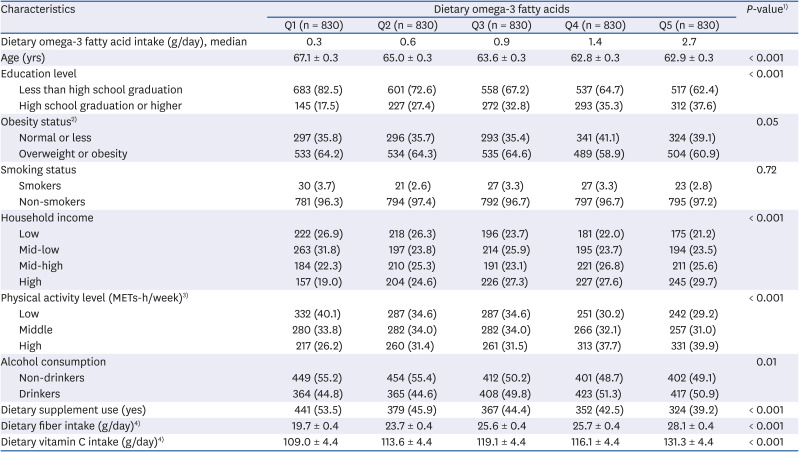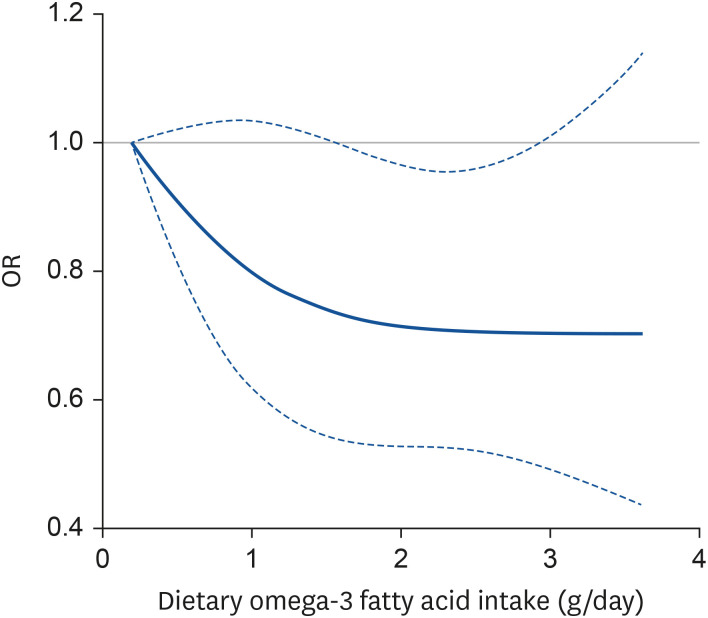1. World Health Organization. Research on the Menopause in the 1990s. Geneva: World Health Organization;1996. p. 12–14.
2. Oppermann K, Fuchs SC, Donato G, Bastos CA, Spritzer PM. Physical, psychological, and menopause-related symptoms and minor psychiatric disorders in a community-based sample of Brazilian premenopausal, perimenopausal, and postmenopausal women. Menopause. 2012; 19:355–360. PMID:
21971211.

3. Freeman EW, Sammel MD, Lin H, Gracia CR, Pien GW, Nelson DB, Sheng L. Symptoms associated with menopausal transition and reproductive hormones in midlife women. Obstet Gynecol. 2007; 110:230–240. PMID:
17666595.

4. Joffe H, Hall JE, Soares CN, Hennen J, Reilly CJ, Carlson K, Cohen LS. Vasomotor symptoms are associated with depression in perimenopausal women seeking primary care. Menopause. 2002; 9:392–398. PMID:
12439097.

5. de Kruif M, Spijker AT, Molendijk ML. Depression during the perimenopause: a meta-analysis. J Affect Disord. 2016; 206:174–180. PMID:
27475888.

6. Molendijk M, Molero P, Ortuño Sánchez-Pedreño F, Van der Does W, Angel Martínez-González M. Diet quality and depression risk: a systematic review and dose-response meta-analysis of prospective studies. J Affect Disord. 2018; 226:346–354. PMID:
29031185.

7. Grosso G, Micek A, Marventano S, Castellano S, Mistretta A, Pajak A, Galvano F. Dietary n-3 PUFA, fish consumption and depression: a systematic review and meta-analysis of observational studies. J Affect Disord. 2016; 205:269–281. PMID:
27544316.

8. Bai ZG, Bo A, Wu SJ, Gai QY, Chi I. Omega-3 polyunsaturated fatty acids and reduction of depressive symptoms in older adults: a systematic review and meta-analysis. J Affect Disord. 2018; 241:241–248. PMID:
30138808.

9. Giacobbe J, Benoiton B, Zunszain P, Pariante CM, Borsini A. The anti-inflammatory role of omega-3 polyunsaturated fatty acids metabolites in pre-clinical models of psychiatric, neurodegenerative, and neurological disorders. Front Psychiatry. 2020; 11:122. PMID:
32180741.

10. Cohen LS, Soares CN, Vitonis AF, Otto MW, Harlow BL. Risk for new onset of depression during the menopausal transition: the Harvard study of moods and cycles. Arch Gen Psychiatry. 2006; 63:385–390. PMID:
16585467.
11. Freeman EW, Sammel MD, Lin H, Nelson DB. Associations of hormones and menopausal status with depressed mood in women with no history of depression. Arch Gen Psychiatry. 2006; 63:375–382. PMID:
16585466.

12. Bromberger JT, Assmann SF, Avis NE, Schocken M, Kravitz HM, Cordal A. Persistent mood symptoms in a multiethnic community cohort of pre- and perimenopausal women. Am J Epidemiol. 2003; 158:347–356. PMID:
12915500.

13. Brinton RD, Tran J, Proffitt P, Montoya M. 17 Beta-estradiol enhances the outgrowth and survival of neocortical neurons in culture. Neurochem Res. 1997; 22:1339–1351. PMID:
9355106.
14. Keenan PA, Ezzat WH, Ginsburg K, Moore GJ. Prefrontal cortex as the site of estrogen’s effect on cognition. Psychoneuroendocrinology. 2001; 26:577–590. PMID:
11403979.

15. Borrow AP, Cameron NM. Estrogenic mediation of serotonergic and neurotrophic systems: implications for female mood disorders. Prog Neuropsychopharmacol Biol Psychiatry. 2014; 54:13–25. PMID:
24865152.

16. Decsi T, Kennedy K. Sex-specific differences in essential fatty acid metabolism. Am J Clin Nutr. 2011; 94:1914S–1919S. PMID:
22089435.

17. Freeman MP, Hibbeln JR, Silver M, Hirschberg AM, Wang B, Yule AM, Petrillo LF, Pascuillo E, Economou NI, Joffe H, et al. Omega-3 fatty acids for major depressive disorder associated with the menopausal transition: a preliminary open trial. Menopause. 2011; 18:279–284. PMID:
21037490.
18. Masoumi SZ, Kazemi F, Tavakolian S, Rahimi A, Oshvandi K, Soltanian A, Shobeiri F. Effect of citalopram in combination with omega-3 on depression in post-menopausal women: a triple blind randomized controlled trial. J Clin Diagn Res. 2016; 10:QC01–05.
19. Yang Y, Je Y. Fish consumption and depression in Korean adults: the Korea National Health and Nutrition Examination Survey, 2013–2015. Eur J Clin Nutr. 2018; 72:1142–1149. PMID:
29339828.

20. Park SJ, Lee DK, Kim B, Na KS, Lee CH, Son YD, Lee HJ. The association between omega-3 fatty acid intake and human brain connectivity in middle-aged depressed women. Nutrients. 2020; 12:2191.

21. Kweon S, Kim Y, Jang MJ, Kim Y, Kim K, Choi S, Chun C, Khang YH, Oh K. Data resource profile: the Korea National Health and Nutrition Examination Survey (KNHANES). Int J Epidemiol. 2014; 43:69–77. PMID:
24585853.

22. Willett W, Stampfer MJ. Total energy intake: implications for epidemiologic analyses. Am J Epidemiol. 1986; 124:17–27. PMID:
3521261.

23. World Health Organization. The Asia-Pacific Perspective: Redefining Obesity and Its Treatment. Sydney: Health Communications Australia;2000. p. 15–21.
24. Ainsworth BE, Haskell WL, Leon AS, Jacobs DR Jr, Montoye HJ, Sallis JF, Paffenbarger RS Jr. Compendium of physical activities: classification of energy costs of human physical activities. Med Sci Sports Exerc. 1993; 25:71–80. PMID:
8292105.

25. Korea Health Industry Development Institute. Development of Nutrient Database. Cheongju: Korea Health Industry Development Institute;2000. p. 26–164.
26. National Institute of Agricultural Sciences. Food Composition Table. 8th ed. Suwon: National Institute of Agricultural Sciences;2011.
27. Yoon MO, Kim K, Hwang JY, Lee HS, Son TY, Moon HK, Shim JE. Development of a fatty acids database using the Korea National Health and Nutrition Examination Survey data. J Nutr Health. 2014; 47:435–442.

28. Korea Centers for Disease Control and Prevention. Guidebook for Data Users of the Sixth Korea National Health and Nutriton Examination Survey (KNHANES VI), 2013–2015. Cheongju: Korea Centers for Disease Control and Prevention;2015.
29. National Fisheries Research & Development Institute (KR). Fatty Acid Composition of Fisheries Products in Korea. Busan: National Fisheries Research & Development Institute;2012. p. 2–123.
30. Rural Development Administration. Fatty acid and cholesterol content of foods. Food Composition Table. 7th ed. Suwon: Rural Development Administration;2006. p. 277–380.
32. Ministry of Education, Culture, Sports, Science and Technology. The Council for Science and Technology, Subdivision on Resources. Standard Tables of Food Composition in Japan (Fifth Revised and Enlarged Edition). Tokyo: Ministry of Education, Culture, Sports, Science and Technology;2005.
33. Korea Centers for Disease Control and Prevention. Korea National Health and Nutrition Survey VI-1 (2013) Health Examination Guidelines. Cheongju: Ministry of Health and Welfare of Korea;2014. p. 46–48.
34. Willett W. Nutritional Epidemiology. 3rd ed. New York (NY): Oxford University Press, USA;2012. p. 274–275.
35. Persons JE, Robinson JG, Ammann EM, Coryell WH, Espeland MA, Harris WS, Manson JE, Fiedorowicz JG. Omega-3 fatty acid biomarkers and subsequent depressive symptoms. Int J Geriatr Psychiatry. 2014; 29:747–757. PMID:
24338726.

36. Skelly AC, Dettori JR, Brodt ED. Assessing bias: the importance of considering confounding. Evid Based Spine Care J. 2012; 3:9–12.

37. Carver JD, Benford VJ, Han B, Cantor AB. The relationship between age and the fatty acid composition of cerebral cortex and erythrocytes in human subjects. Brain Res Bull. 2001; 56:79–85. PMID:
11704343.

38. Logan AC. Neurobehavioral aspects of omega-3 fatty acids: possible mechanisms and therapeutic value in major depression. Altern Med Rev. 2003; 8:410–425. PMID:
14653768.
39. Owen C, Rees AM, Parker G. The role of fatty acids in the development and treatment of mood disorders. Curr Opin Psychiatry. 2008; 21:19–24. PMID:
18281836.

40. Mizuno M, Yamada K, Olariu A, Nawa H, Nabeshima T. Involvement of brain-derived neurotrophic factor in spatial memory formation and maintenance in a radial arm maze test in rats. J Neurosci. 2000; 20:7116–7121. PMID:
10995859.

41. Duman RS, Monteggia LM. A neurotrophic model for stress-related mood disorders. Biol Psychiatry. 2006; 59:1116–1127. PMID:
16631126.

42. Zunszain PA, Hepgul N, Pariante CM. Inflammation and depression. Curr Top Behav Neurosci. 2013; 14:135–151. PMID:
22553073.

43. Pfeilschifter J, Köditz R, Pfohl M, Schatz H. Changes in proinflammatory cytokine activity after menopause. Endocr Rev. 2002; 23:90–119. PMID:
11844745.

44. Saldeen P, Saldeen T. Women and omega-3 fatty acids. Obstet Gynecol Surv. 2004; 59:722–730. PMID:
15385858.

45. Lamers F, Milaneschi Y, Smit JH, Schoevers RA, Wittenberg G, Penninx BW. Longitudinal association between depression and inflammatory markers: results from the Netherlands study of depression and anxiety. Biol Psychiatry. 2019; 85:829–837. PMID:
30819515.

46. Chamani S, Bianconi V, Tasbandi A, Pirro M, Barreto GE, Jamialahmadi T, Sahebkar A. Resolution of Inflammation in neurodegenerative diseases: the role of resolvins. Mediators Inflamm. 2020; 2020:3267172. PMID:
32308554.

47. Bove M, Mhillaj E, Tucci P, Giardino I, Schiavone S, Morgese MG, Trabace L. Effects of n-3 PUFA enriched and n-3 PUFA deficient diets in naïve and Aβ-treated female rats. Biochem Pharmacol. 2018; 155:326–335. PMID:
30028991.

48. Turkmen S, Hernández-Cruz CM, Zamorano MJ, Fernández-Palacios H, Montero D, Afonso JM, Izquierdo M. Long-chain PUFA profiles in parental diets induce long-term effects on growth, fatty acid profiles, expression of fatty acid desaturase 2 and selected immune system-related genes in the offspring of gilthead seabream. Br J Nutr. 2019; 122:25–38. PMID:
31266551.

49. Horikawa C, Otsuka R, Kato Y, Nishita Y, Tange C, Rogi T, Kawashima H, Shibata H, Ando F, Shimokata H. Longitudinal association between n-3 long-chain polyunsaturated fatty acid intake and depressive symptoms: a population-based cohort study in Japan. Nutrients. 2018; 10:1655.
50. Liao Y, Xie B, Zhang H, He Q, Guo L, Subramaniapillai M, Fan B, Lu C, Mclntyer RS. Efficacy of omega-3 PUFAs in depression: a meta-analysis. Transl Psychiatry. 2019; 9:190. PMID:
31383846.

51. Guu TW, Mischoulon D, Sarris J, Hibbeln J, McNamara RK, Hamazaki K, Freeman MP, Maes M, Matsuoka YJ, Belmaker RH, et al. A multi-national, multi-disciplinary Delphi consensus study on using omega-3 polyunsaturated fatty acids (n-3 PUFAs) for the treatment of major depressive disorder. J Affect Disord. 2020; 265:233–238. PMID:
32090746.

52. Bozzatello P, Rocca P, Mantelli E, Bellino S. Polyunsaturated fatty acids: what is their role in treatment of psychiatric disorders? Int J Mol Sci. 2019; 20:5257.

53. Wani AL, Bhat SA, Ara A. Omega-3 fatty acids and the treatment of depression: a review of scientific evidence. Integr Med Res. 2015; 4:132–141. PMID:
28664119.

54. Logan AC. Omega-3 fatty acids and major depression: a primer for the mental health professional. Lipids Health Dis. 2004; 3:25. PMID:
15535884.
55. Milajerdi A, Keshteli AH, Afshar H, Esmaillzadeh A, Adibi P. Dietary total antioxidant capacity in relation to depression and anxiety in Iranian adults. Nutrition. 2019; 65:85–90. PMID:
31077947.








 PDF
PDF Citation
Citation Print
Print



 XML Download
XML Download